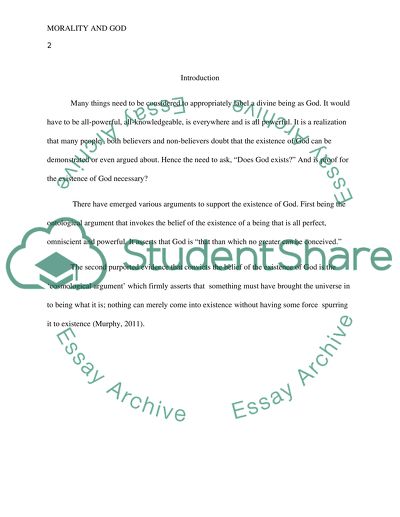Cite this document
(“Morality and God Essay Example | Topics and Well Written Essays - 1500 words”, n.d.)
Retrieved from https://studentshare.org/philosophy/1469554-morality-and-god
Retrieved from https://studentshare.org/philosophy/1469554-morality-and-god
(Morality and God Essay Example | Topics and Well Written Essays - 1500 Words)
https://studentshare.org/philosophy/1469554-morality-and-god.
https://studentshare.org/philosophy/1469554-morality-and-god.
“Morality and God Essay Example | Topics and Well Written Essays - 1500 Words”, n.d. https://studentshare.org/philosophy/1469554-morality-and-god.


